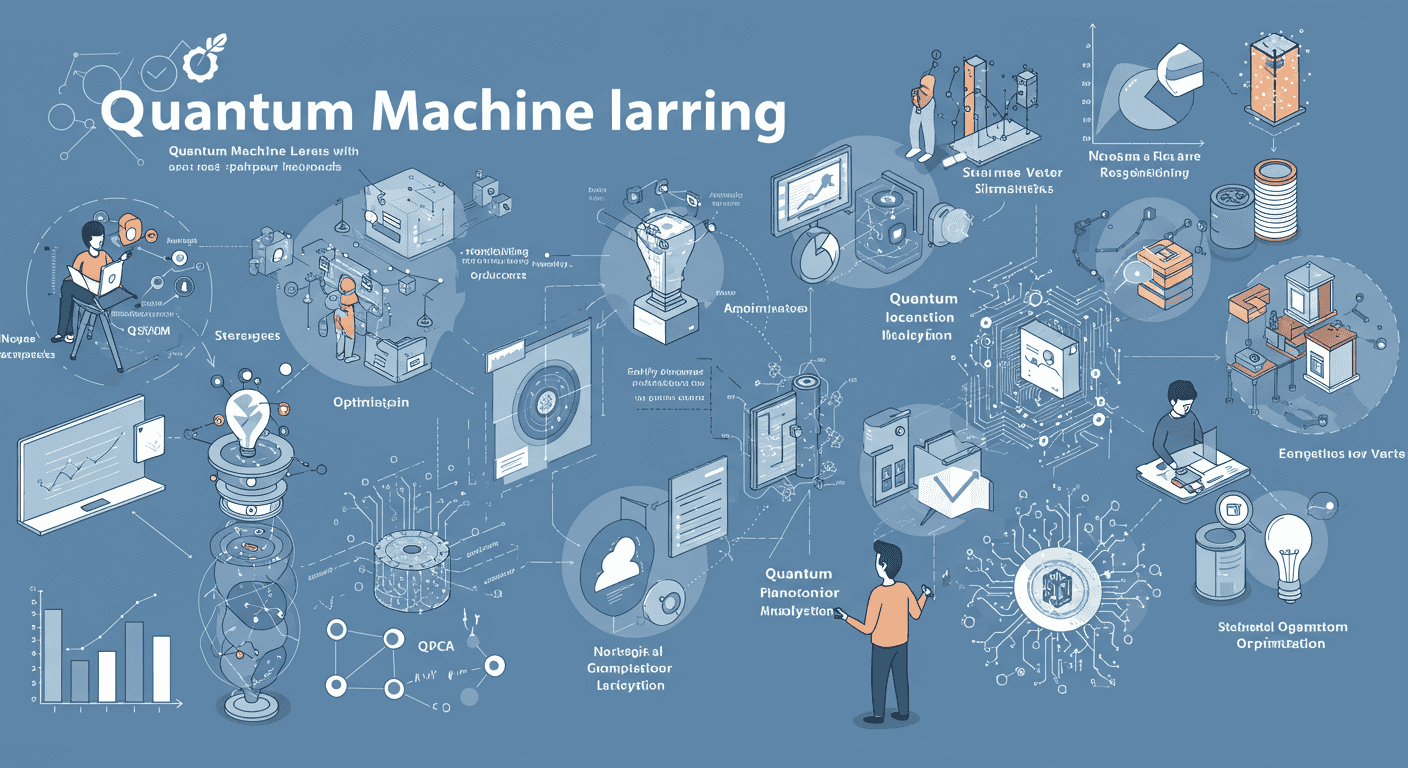
In recent years, the fields of quantum computing and artificial intelligence have each seen remarkable advances. Now, as researchers and engineers begin to fuse these disciplines, we stand on the brink of a new technological era. Quantum-enhanced AI promises to tackle problems that were previously intractable, from optimizing complex supply chains to accelerating drug discovery. In this article, we explore how quantum computing operates, examine its impact on machine learning, survey real-world applications, discuss key challenges, and glimpse the future of quantum-driven AI.
Understanding Quantum Computing
Classical computers process information using bits, which exist in states of 0 or 1. Quantum computers, by contrast, use quantum bits or “qubits,” which exploit the principles of superposition and entanglement. A qubit can represent 0 and 1 simultaneously, and when multiple qubits become entangled, they can encode and process exponentially more information than classical bits.
Key quantum phenomena:
- Superposition: Qubits inhabit multiple states at once, enabling parallel computation on a vast number of possibilities.
- Entanglement: Qubits can become correlated so that the state of one qubit instantly influences another, regardless of distance.
- Quantum interference: By designing algorithms that amplify correct solutions and cancel out wrong ones, quantum computers can zero in on answers with fewer operations.
While fully fault-tolerant quantum computers remain under development, cloud-accessible quantum devices and simulators already let researchers prototype algorithms and explore potential applications.
Quantum Machine Learning and AI

Quantum machine learning merges classical AI techniques with quantum computation to unlock new capabilities. Early studies demonstrate potential advantages in areas such as pattern recognition, optimization, and sampling.
Notable quantum machine learning approaches:
- Quantum Support Vector Machines (QSVM): Exploiting the high-dimensionality of quantum feature spaces to improve classification accuracy.
- Quantum Principal Component Analysis (QPCA): Accelerating dimensionality reduction for large datasets by leveraging quantum singular value estimation.
- Variational Quantum Circuits: Hybrid algorithms that combine parameterized quantum circuits with classical optimizers to train models on near-term quantum hardware.
These methods are particularly promising for handling high-dimensional data and complex optimization landscapes. For instance, in finance, port¬folio optimization can benefit from quantum algorithms that explore vast combinations of assets more efficiently than classical solvers.
Real-World Applications
Though still nascent, quantum-enhanced AI is already showing potential across several industries:
1. Drug Discovery and Healthcare
Simulating molecular interactions at the quantum level can identify promising drug candidates far more quickly. Quantum machine learning further accelerates the screening process by predicting molecular properties and toxicities, reducing time and cost in clinical trials.
2. Finance and Risk Management
Quantum algorithms can optimize portfolios, price complex derivatives, and perform real-time risk analysis. Coupled with AI models that forecast market trends, financial institutions may gain deeper insights and more robust strategies in volatile markets.
3. Materials Science
Designing novel materials with desirable properties—for example, high-temperature superconductors or next-generation battery electrodes—requires exploring vast chemical spaces. Quantum simulation combined with AI-driven pattern recognition accelerates this discovery process.
4. Cryptography and Cybersecurity
While quantum computers pose a threat to current encryption schemes, they also enable the development of quantum-safe cryptographic algorithms. Furthermore, AI-powered anomaly detection on quantum-resistant networks can enhance defense against advanced cyberattacks.
Challenges and Considerations
Despite its promise, quantum AI faces significant hurdles:
- Hardware Limitations: Current quantum processors have limited qubit counts and high error rates due to decoherence.
- Error Correction: Implementing robust quantum error-correction codes requires substantial overhead, often dwarfing the number of logical qubits available.
- Algorithm Development: Crafting quantum algorithms that demonstrate clear advantage over classical counterparts remains a research frontier.
- Integration Complexity: Hybrid quantum-classical workflows demand new software stacks, programming languages, and interconnects.
- Talent and Expertise: A shortage of scientists proficient in both quantum physics and AI slows progress and adoption.
Nevertheless, industry investment continues to grow, and quantum-as-a-service platforms are making hardware more accessible to developers worldwide.
The Future of Quantum AI
Looking ahead, the convergence of quantum computing and AI may transform numerous domains:
- Climate Modeling: Quantum simulations of complex climate systems, combined with AI forecasting, could lead to more accurate predictions and better mitigation strategies.
- Personalized Medicine: Tailoring treatments based on quantum-enhanced analysis of genomic and proteomic data may yield highly effective therapies with fewer side effects.
- Autonomous Systems: Quantum-optimized reinforcement learning could improve decision-making in self-driving vehicles and robotics, enhancing safety and efficiency.
- Intelligent Supply Chains: End-to-end optimization using quantum algorithms and AI can minimize waste, reduce costs, and respond dynamically to disruptions.
As quantum processors scale up and become more reliable, we can expect hybrid architectures—where classical and quantum resources work in tandem—to dominate computational workflows. Such systems will harness the strengths of both paradigms, unleashing new levels of innovation.
Conclusion
Quantum computing holds the potential to elevate artificial intelligence to unprecedented heights. By exploiting quantum mechanical effects, researchers are developing algorithms that tackle complex tasks in optimization, simulation, and pattern recognition. While significant challenges remain in hardware, error correction, and talent development, ongoing investments and collaborative efforts promise steady progress. Organizations that begin exploring quantum-enhanced AI today will be best positioned to lead in tomorrow’s data-driven, algorithmic economy. Embrace this emerging frontier now, and stay ahead in the race to the quantum future.
Learn more about: Neuromorphic Computing: The Next Frontier for AI Efficiency









Leave a Reply